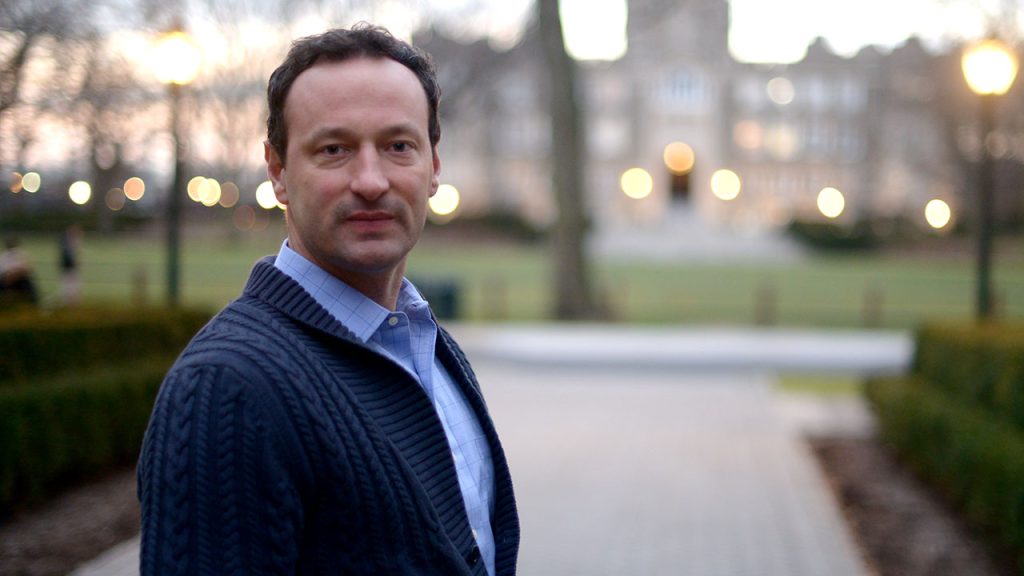Marc Conte, Ph.D., a professor of economics whose research focuses on pollution, biodiversity, and climate change, has been selected to join the fifth New York City Panel on Climate Change (NCPP).
The panel is an independent advisory body that synthesizes scientific information on climate change. Members advise city policymakers on local resilience and adaptation strategies that protect against extreme heat, heavy rain, coastal storm surges, and other climate hazards.
“Much of New York City comprises islands. We must be prepared for the fact that we’re at risk of future hurricane landfall, we’re going to lose land to sea-level rise, and there will also be drought and temperature increases,” said Conte.
“I’m very excited to contribute knowledge that can be put to good use for a panel like this.”
Conte is the first Fordham professor to join the panel, which was first formed in 2009 and renews its membership every three years, tapping experts from government, non-profits, and academia. This appointment is not the first time the government has called on Conte for his expertise; his research on climate change was cited in a major report issued by the White House.
Learning from Past Climate Disasters
Each new panel is tasked with issuing a report at the end of its three-year term. Conte said that past panels have analyzed global climate models that had been recently released, downscaling them to show how they might affect New York City.
No new models have been released recently, so he said he expects this panel will dig deeper into the challenges that are already known–particularly those highlighted by recent disasters. The group will hold a series of public meetings this year to gauge the public’s interest in specific areas.
Conte said the panel will provide important guidance during a critical time.
“Given the outcome of the recent election, we expect that federal leadership in this area is going to be greatly diminished,” he said.
“New York City is a high profile area, so this kind of assessment is important to maintain the focus on the challenges we face and show what can happen at the local level to reduce the impacts of climate change.”
Recent examples of extreme weather worth re-examining are numerous. Conte said the panel may determine what will happen to water supplies if droughts like the one that lasted nearly a month continue. Or it might try to quantify the risks that New Yorkers will be exposed to as a result of extreme bad air days caused by Canadian wildfires or those posed by brush fires that have been on the rise in the New York City area.
“We’re also thinking about when the next Superstorm Sandy is going to come through and how we’ll have to deal with it,” he said.
Conte, who has published research on outdoor air pollution in New York City, the challenges of managing tropical cyclone risk, and the impact of climate change on natural capital, hopes the panel will explore each of these topics.
The Everyday Costs of Climate Change
He’s also hopeful that as an economist, he’ll be able to help the panel illustrate the societal costs of climate change and pollution that are poorly understood by the general public.
“One of the big challenges is that, as we just saw in this election, everyone cares about the price of milk, but we don’t have a price for clean air or a price for not having to miss work because of asthma or because it’s too hot,” he said.
“I’m hoping to provide literature that shows what types of policy interventions are successful when facing these challenges and what the difficulties are for policymakers in putting them into action.”

